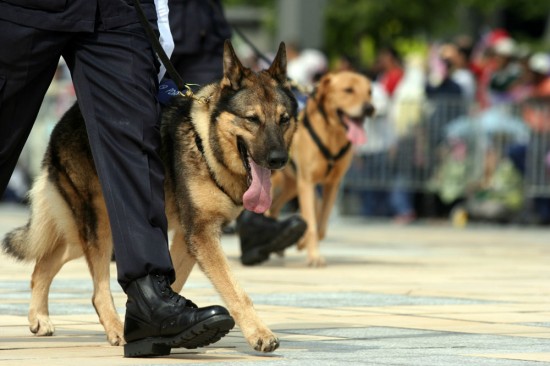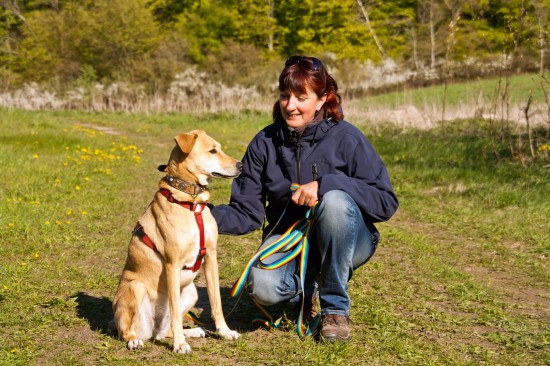
Some dog owners, especially new ones, may find training a dog difficult but that is not the case with labrador retriever training. This breed is intelligent and has highly adaptable personality so training them is not supposed to be a problem so long as you know what training methods to adhere to and what training mistakes to avoid.
Physical punishment
Training can be frustrating sometimes particularly if your pet has stubborn personality. But even if you're at your wits end, never ever hit or smack him should he fail to obey what you are asking him to do. He will not understand that he is being punished for not knowing how to sit or come or for urinating in the living room while you are away. Instead of improve the situation, he may associate the hitting or smacking to training thereby making him afraid of it.
Lengthy training sessions
Although a labrador retriever is capable of intense focus especially if the interest is caught, we cannot deny the fact that dogs have short attention span. That is why most experts recommend that labrador retriever training sessions should last for 10 to 15 minutes only. Training activities should also be fun and challenging enough in order to motivate your pet.
Untimely correction
Correct your dog only when you catch him in the act of doing the mistake. Giving correction two hours or even 30 minutes after the deed is done will do you no good since your dog will not understand what the correction is for. The best way to correct your dog is to keep an eye on your dog and act immediately when you see him about to do something undesirable. Through this, he will be able to associate the correction with the right deed.
Using different training terms
Using different terms can be confusing to your pet. For example, if you use "come" command during training, you have to be consistent in using it. Using "come here" or "come boy" may mean different to him.
Neglecting to recognize good behavior
Every good behavior should be recognized and rewarded to make it clear to your dog that you are pleased with what he did. Doing so will not only make him happy but is also more likely to motivate him to repeat doing the behavior he is being rewarded for. Reward doesn't necessarily have to be delicious treats or new toys. A pat in the back, time to play and lots of praises should be enough.
Kate Truman is giving advices about Labrador Retriever training. Learn more from her by visiting her site about Labrador Retriever training.
 6 Good Reasons To Adopt A Retired German Shepherd
6 Good Reasons To
6 Good Reasons To Adopt A Retired German Shepherd
6 Good Reasons To
 Walking The Dog - Three Common Challenges You Might Encounter
Walking The Dog -
Walking The Dog - Three Common Challenges You Might Encounter
Walking The Dog -
 Is Having Two Cats Together Better Than One?
Is Having Two Cat
Is Having Two Cats Together Better Than One?
Is Having Two Cat
 Blindness In Cats
Blindness In Cats
Blindness In Cats
Blindness In Cats
 Five Dog Breeds That Are Prone To Obesity
Five Dog Breeds T
Five Dog Breeds That Are Prone To Obesity
Five Dog Breeds T
Copyright © 2005-2016 Pet Information All Rights Reserved
Contact us: www162date@outlook.com